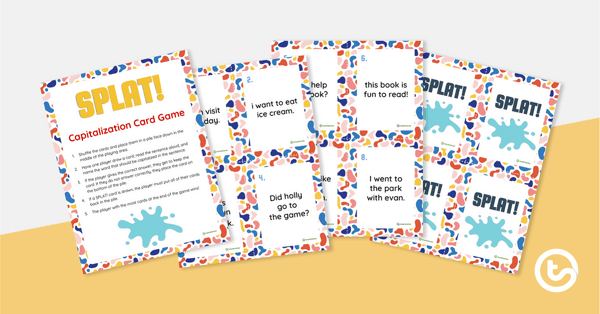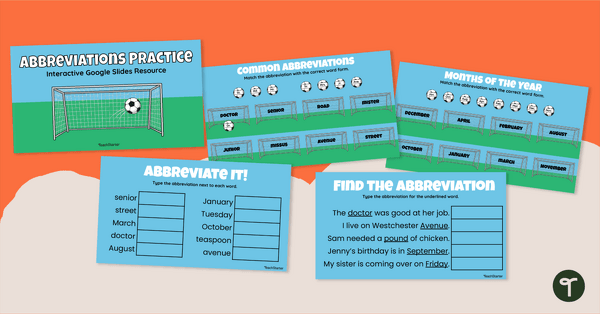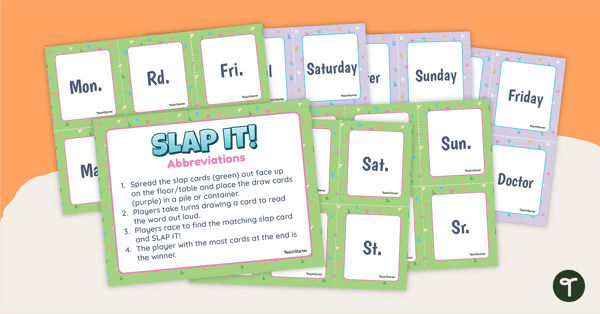Capitalization Teaching Resources
Teach students the capitalization rules this school year with printable worksheets, fun writing games, instructional slide decks and more elementary school teaching resources designed to help extend and improve your students' understanding of when to capitalize letters in their writing.
Teachers have created this extensive collection of teaching resources for teachers like you to teach this important part of writing mechanics. Aligned to the Common Core curriculum, the ELA collection includes editable worksheets and teaching presentations and more to help you cut back on lesson planning time.
Created by expert teachers, each resource in this capitalization collection has been carefully reviewed and curated by our team. That means it's ready to use in the classroom! You'll even find editable resources, plus differentiated options.
New to teaching this part of the ELA curriculum, or just looking for fresh ways to engage your students? Read on for a primer from our teaching team!
What Is Capitalization? A Kid-Friendly Definition
Teaching capitalization? Here's a way to explain the definition to students in a kid-friendly manner.
Capitalization is when we use an uppercase letter (also called a capital letter!) at the beginning of a word instead of a small letter. It's like giving the word a special hat to make it stand out!
Capitalization Rules and Examples for Kids
When do you capitalize a letter, and when should you stick to lowercase? Let's take a look at some of the capitalization rules that students can use to make their writing easier for the reader, plus some examples of capital letters used correctly!
- Always capitalize the first letter of the first word in a sentence. Example: The dog barked loudly.
- Capitalize the first letter of people's names. Example: Javier is my friend.
- Capitalize the first letter of the name of a place. Example: I live in New York City.
- Capitalize the first letter of the days of the week and the months of the year. Example: Today is Monday, May 15.
- Capitalize the first letter of the first word and all other important words in a title of a book, movie or song. Example: I really enjoyed reading "Beezus and Ramona."
- Always capitalize the pronoun I.
- Capitalize the first letter of the name of a historical event or a holiday. Example: I learned about the Revolutionary War in social studies.
- Plus Plan

SPLAT! Capitalization Card Game
Practice capitalizing the pronoun I, the names of people, and the beginning letter in sentences with our set of 20 capitalization game cards.
- Plus Plan

Google Slides Interactive - Abbreviations Activity
Engage and excite your learners with a Google Interactive designed to teach the most common abbreviations in the English language.
- Plus Plan

Abbreviations SLAP IT! Card Game
Play an abbreviation matching game to enhance grammar and spelling skills in the classroom.